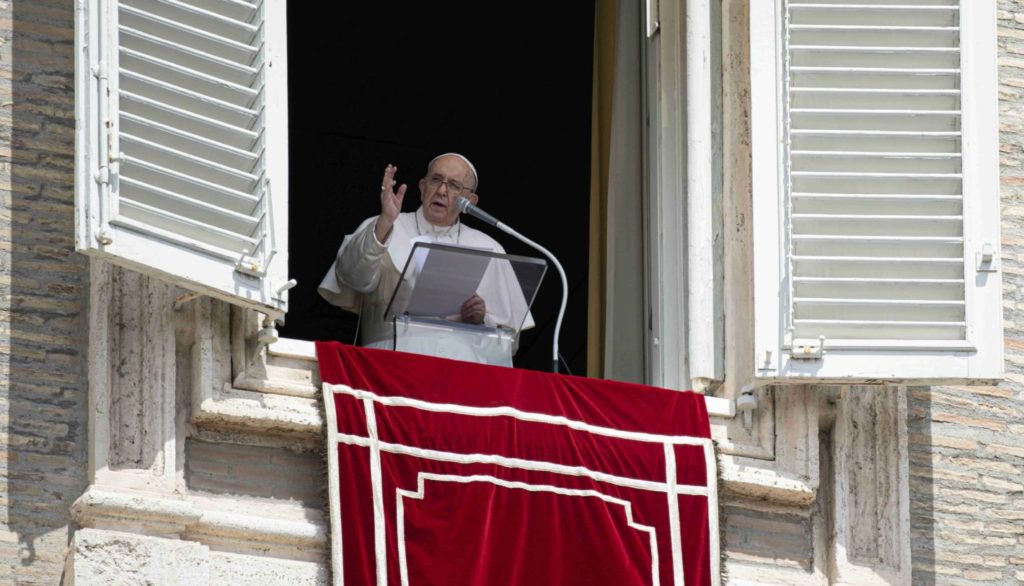Pope Francis, after the Angelus prayer from the window of the Apostolic Palace, facing St. Peter's Square, commented on the Gospel of the day, assuring that "in the Gospel of today's Liturgy, Jesus continues to preach to the people who have seen the miracle of the multiplication of the loaves. And he invites those people to take a leap of quality: after having recalled the manna, with which God had satisfied the fathers' hunger along the way through the desert, he now applies the symbol of bread to himself. He says clearly: "I am the bread of life" (Jn 6,48)".
"What does bread of life mean?" the Pope asks rhetorically. "To live one needs bread. Whoever is hungry does not ask for refined and expensive food, he asks for bread. He who has no work does not ask for high wages, but for the "bread" of a job. Jesus reveals Himself as bread, that is, the essential, the necessary for daily life, without Him it does not work. Not one bread among many, but the bread of life. In other words, without Him, we survive rather than live: because He alone nourishes our souls, He alone forgives us of that evil that we alone cannot overcome, He alone makes us feel loved even when everyone disappoints us, He alone gives us the strength to love, He alone gives us the strength to forgive in difficulties, He alone gives the heart that peace it seeks, He alone gives life forever when life here on earth is over. And the essential bread of life.
"I am the bread of life,' he says. We remain on this beautiful image of Jesus. He could have made a reasoning, a demonstration, but - we know - Jesus speaks in parables, and in this expression: "I am the bread of life", he truly summarizes his whole being and his whole mission. This will be fully seen at the end, at the Last Supper. Jesus knows that the Father asks him not only to feed people, but to give himself, to break himself, his own life, his own flesh, his own heart so that we may have life. These words of the Lord awaken in us amazement at the gift of the Eucharist. No one in this world, no matter how much he loves another person, can make himself food for him. God has done it, and does it, for us. Let us renew this amazement. Let us do it by adoring the Bread of Life, because adoration fills life with wonder.
"In the Gospel, however," Francis continues, "instead of being astonished, people are scandalized and tear their clothes. They think: "Is not this Jesus, son of Joseph, whose father and mother we know? How can he now say: I have come down from heaven?" (cf. vv. 41-42). Perhaps we too are scandalized: it would be more comfortable for us to have a God who is in heaven without interfering in our lives, while we can manage our affairs here below. Yet God became man to enter into the concrete of the world, to enter into our concreteness, God became man for me, for you, for all of us, to enter into our lives. And he is interested in everything in our life. We can speak to him about our affections, our work, our journey, our pains, our anguish, many things. We can tell him everything because Jesus desires this intimacy with us. What does he not desire? To be relegated to the background - He who is the bread - to be neglected and left aside, or to be called only when we are in need".
"I am the bread of life. At least once a day we find ourselves eating together; perhaps in the evening, as a family, after a day of work or study. It would be nice, before breaking bread, to invite Jesus, the bread of life, asking him with simplicity to bless what we have done and what we have failed to do. Let us invite him home, let us pray in a "domestic" way. Jesus will be at the table with us and we will be nourished by a greater love".
The Pope concluded by turning to the Virgin Mary: "May the Virgin Mary, in whom the Word was made flesh, help us to grow day by day in the friendship of Jesus, the bread of life".








